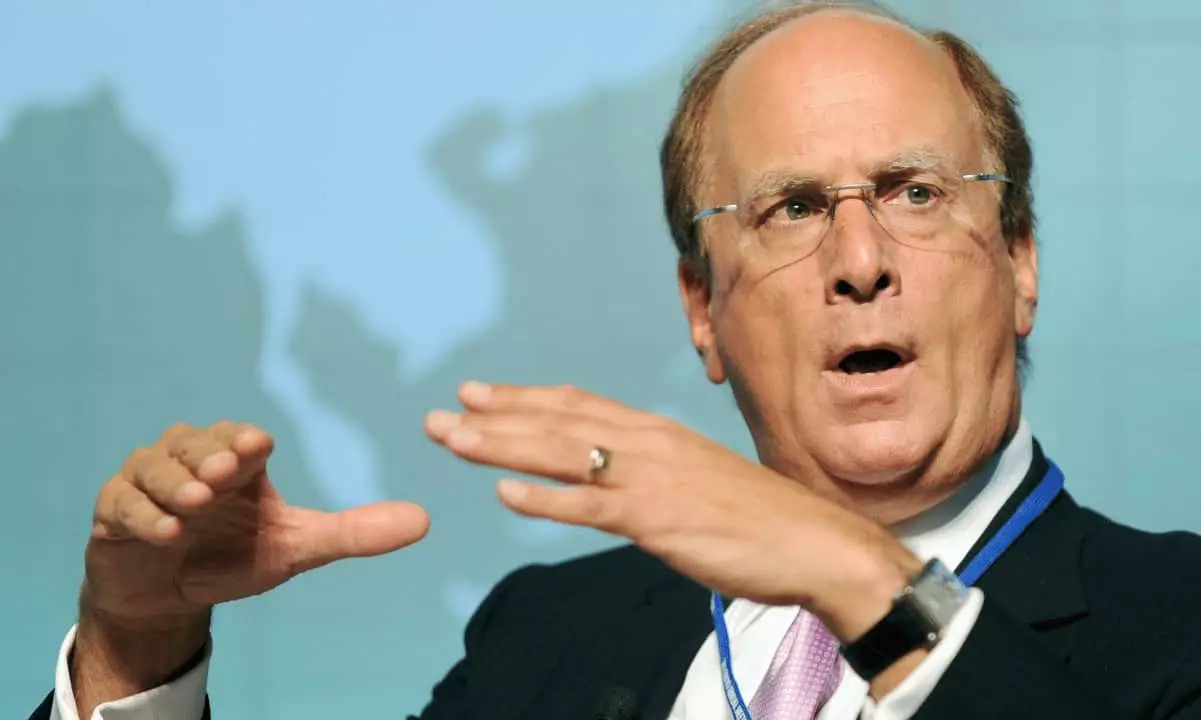In a pivotal shift within the finance sector, Larry Fink, CEO of BlackRock, has articulated a new vision for Bitcoin (BTC) that underscores its legitimacy as a distinct asset class. During a recent earnings call, he boldly likened Bitcoin’s investment capabilities to those of traditional commodities, notably gold. By framing Bitcoin as not just a speculative digital currency but as an alternative asset, Fink is steering BlackRock towards a more integrated approach to digital assets, which may profoundly influence institutional investment strategies.
Fink’s declaration that “Bitcoin is an asset class in itself” emphasizes a significant transition in the narrative surrounding cryptocurrencies. This acknowledgment by the world’s largest asset manager signals a growing acceptance of Bitcoin as a viable option for portfolio diversification. BlackRock’s exploration of potential allocations in Bitcoin among global institutional investors further highlights the changing tides in asset management, encouraging other firms to reconsider their own stances on digital currencies.
One of the critical components of Fink’s perspective is his assertion that the future success of digital assets will hinge more on liquidity and transparency rather than regulatory frameworks alone. This insight suggests that as the cryptocurrency market matures, the clarity and liquidity of digital asset transactions will play a vital role in shaping its trajectory. By comparing the current cryptocurrency landscape to the early days of the mortgage market, Fink draws parallels that suggest digital assets could experience exponential growth, similar to traditional markets as they develop improved analytics and data accessibility.
“Like the mortgage and high-yield bonds, cryptocurrencies are still in their infancy,” Fink stated, indicating that increased data clarity could foster broader acceptance and integration across financial systems. If historical patterns hold true, this could represent a transformative period for Bitcoin and its peers, offering robust opportunities for future investors.
Fink also ventured into the broader discussion of digitizing national currencies, spotlighting initiatives like the potential for a digital U.S. dollar. He alluded to successful implementations in countries such as India and Brazil, where digital currencies have been operationalized. This perspective reflects a growing consensus that digital national currencies could enhance transaction efficiencies, increase financial inclusion, and usher in a new era of monetary policy.
Additionally, the integration of artificial intelligence and sophisticated data analytics into the financial landscape could catalyze the growth of digital asset markets, reducing friction and enhancing the user experience. By highlighting these technological advancements, Fink implies that future innovations will be pivotal in fostering trust among users and investors alike.
BlackRock’s strategic movements in the cryptocurrency space are notable; the firm is not just a passive observer but an active player influencing market dynamics. The launch of its spot Bitcoin ETF has stimulated substantial inflows, with October 14 being a standout day that saw an impressive $555.9 million in new investments across various spot Bitcoin ETFs. Kicking off with the successful debut of its Bitcoin ETF earlier this year, BlackRock has not only driven cryptocurrency prices towards record highs but has also paved the way for further developments, including a spot Ethereum ETF.
As traditional finance and cryptocurrency continue to converge, Fink’s vision for Bitcoin as a central figure in asset allocation could significantly shape future investment horizons. BlackRock’s moves, both strategically and philosophically, could lead to enhanced credibility and stability within the volatile world of digital currencies, catalyzing a broader acceptance among investors across the globe.














